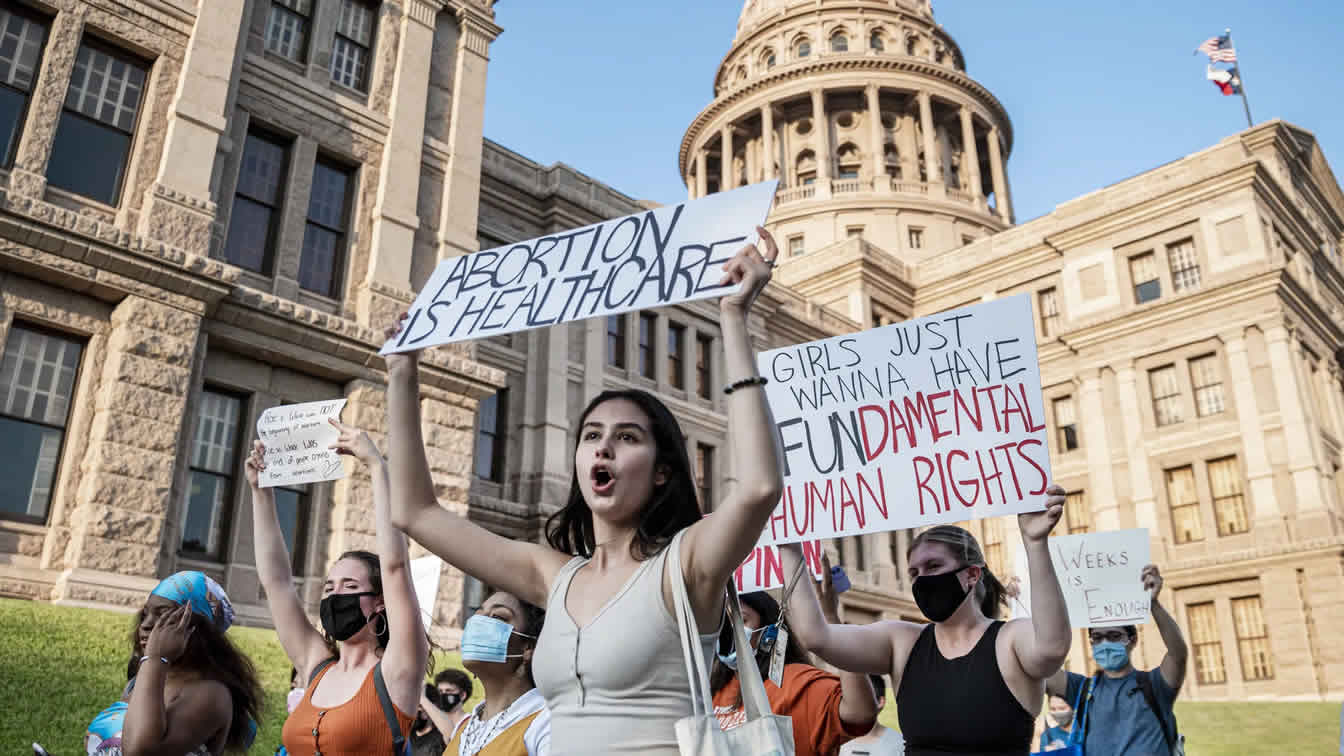A federal judge has issued a temporary restraining order blocking Texas’ controversial new abortion law, which bans the procedure as early as six weeks into pregnancy and allows private citizens to sue anyone who aids or abets an abortion in violation of the law. The decision marks a significant victory for abortion rights advocates, who have been fighting against the law since it was signed by Texas Governor Greg Abbott in May.
U.S. District Judge Robert L. Pitman issued the order on Wednesday, stating that the law is likely unconstitutional and would cause “irreparable harm” to women seeking abortions in Texas. The law, known as Senate Bill 8, had gone into effect earlier this month, sparking outrage and protests from abortion rights activists across the country.
The law is considered one of the most restrictive abortion measures in the country, banning the procedure before many women even know they are pregnant. It also allows private citizens to sue anyone who aids or abets an abortion, including doctors, nurses, and even ride-share drivers who transport women to abortion clinics.
The lawsuit challenging the law was brought by a group of abortion providers and advocates, who argued that the law violates the U.S. Constitution’s protections for reproductive rights. Judge Pitman agreed, stating that the law “prevents women from exercising their constitutional rights by creating a patchwork of bans and restrictions.”
“The court concludes that S.B. 8 creates a probable, irreparable, and imminent injury in the deprivation of a woman’s right to choose to have an abortion,” Pitman wrote in his decision.
The temporary restraining order will remain in place while the legal challenge to the law proceeds. It is unclear how long the case may take to be resolved, and it is likely that the issue will eventually be decided by the Supreme Court.
The ruling was welcomed by abortion rights advocates, who have been fighting against a wave of restrictive abortion laws in recent years. However, opponents of abortion rights criticized the decision, with some vowing to continue fighting to restrict access to the procedure.
In a statement, Texas Governor Greg Abbott vowed to continue defending the law and called the ruling “an assault on the rule of law.”
“Texas will continue to fight for the right to protect life,” Abbott said. “We will not be deterred by this temporary setback.”
The ruling comes amid a broader national debate over reproductive rights and access to abortion. With the Supreme Court set to hear a major abortion case later this year, the future of abortion rights in the United States remains uncertain. However, for now, advocates are celebrating the ruling as a victory for women’s rights and reproductive freedom.


